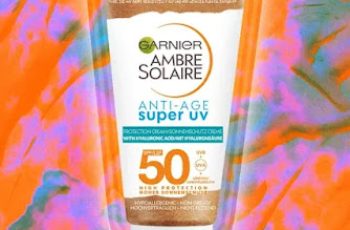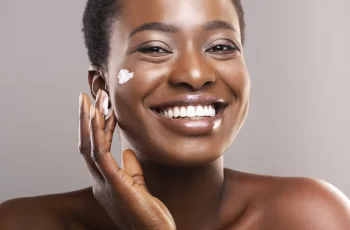
When and How to Use Toner
When and how you use a toner in your skincare routine will dramatically effect how well all of the other products in your skin routine work. You may not even need a toner in your routine- but if you do- make sure you use them correctly.
This blog discusses how to use toners (also called essences) and how toners differ from micellar water and cleansers. The advice i give my patients is “Know your Baumann Skin Type before buying any skincare products so you know you are using the correct products in the right order of your skincare routine.” Once you get our skincare routine advice, you will know exactly how often to apply toner and what step to use toner in your skincare routine.
How to Apply Toner
Always apply toner after cleansing. If you have very delicate eye skin, you can apply your eye cream before using a toner. After applying a toner, follow with a serum or moisturizer that is right for your Baumann Skin Type.
You can learn about types of toners here.
To apply toner, use a cleansing pad or a cotton call. Wet it thoroughly- but not so much that it is dripping. Wipe across the T-zone first and then the remaining part of the forehead and chin. If you have dry cheeks, you can skip using toner on your cheeks and just do the central face. If you are using a hyaluronic acid or glycerin-based toner, treat your cheek areas as well.
How to Apply Toner Without a Cotton Ball
Moistened pads containing toner and can be used if you do not want to use cotton balls. In some cases, there are prepackaged and easy to use on the go. I like to use the individually wrapped acne treatment pads for my teenage patients with acne. However, this is not the best for the environment.
So if you wan to reduce waste and avoid increasing garbage, you can use a soft facial cloth or an old soft that. (Make sure to wash it every day so bacteria does not build up in the fabric).
You can also pour toner in the palm of your hand and apply it to your face with your fingers but this wastes toner and can dry out the skin on your palms. So- always rinse your hands and apply a hand cream after using.
How to Use Toner
Toner is not necessary for most skin types because serums are often used instead. Once you take our skin type quiz, we will tell you if a toner or serum is better for you, how many times a day to use it and when to use it in your skincare routine.
How often to use
How often to use toner depends upon many things such as:
which skin type do you have
what ingredients are in the toner
how is your skin feeling that day.
For example, if you have sensitive skin and your skin burns and stings- skip your toner because it may dry and irritate your skin.
However, if your skin is sensitive, a soothing toner with anti-inflammatory ingredients can be used when your skin feels sensitive. It is hard to give you advice without knowing your skin type, so take the quiz and we can give you better recommendations on what toners to use and when to use them.
Toners and Cleansing
If you washed your face before you went to bed, you can use a toner in the morning instead of a cleanser (for most skin types). But never replace your night cleanser with a toner. You need a true cleanser to remove the oil, sweat, makeup, sunscreen, and pollutants from the day.
Cleansers vs Toners
There is a big difference between cleansers and toners.
Most toners have alcohol and astringents. They often have ingredients that are left on the skin when the liquid part of the toner evaporates.
Cleansers have surfactants – also known as detergents- that remove oil, dirt, sunscreen and sweat from the skin’s surface. Some cleansers have hydrating lipids that are left on the skin once the cleanser is washed off. Toners usually do not have lipids.
Toners vs Micellar Water
Some people think micellar water is a type of toner, but it is actually a type of skin cleanser. Micellar water contains small amounts of detergents and should be washed off the skin. I know the skincare companies tell you that micellar water can be left on the skin, but this is a bad idea if you have dry skin, sensitive skin, eczema, or are on topical retinoids or benzoyl peroxide.
Toners can be used to remove makeup, but micellar water does a better job of washing off cosmetics.
Wash off Toner
Toners are left on the skin and not washed off. Micellar water should be rinsed off.
When to Use Toner in Your Skincare Routine
Toners are always used in Step 3 of your am and pm skin routine.
Many skin types do not need a toner and a serum will be used in Step 3 instead of a toner. It depends upon which Baumann kin Type you are. In my opinion as a dermatologist, I think you should only use a toner if you have acne or oily skin. You can also use a toner to apply hydroxyacids and salicylic acid to treat rough skin or as part of an antiaging skincare routine.
Day or Night Routine
If a toner is right for your Baumann Skin Type, when to use it depends on the other products in your skin care routine. It does not matter if you use toners in the morning or at night, but they will dramatically effect how well other products in your routine work so you really need to consider the order you use them based on which ingredients they contain.
Using Toner with Moisturizer
You always use toner before your moisturizer. You would not want ot use it after the moisturizer because most toners have alcohols and other ingredients that will dissolve the lipids in your moisturizer and interfere with the barrier repair effects of the moisturizer. It is best to apply toner first and let it absorb and the solvent sin it evaporate. After waiting a few seconds, you can then follow toner with a moisturizer.
Toner or Serum First?
Toners always go before serums. If you put a toner after a serum it can inactivate some of the important ingredients in the serum. Properly matching a toner and a serum can make the serum work better. An example is Vitamin C serums. Most Vitamin C serums need a low pH to penetrate well. Using a low pH hydroxyacid toner or a toner with hyaluronic acid and no lipids before an ascorbic acid serum can help the Vitamin C absorb better.
How Often To Use
How often to use toner depends upon many factors such as your skin type, what ingredients are in the toner, and your lifestyle, and what other products are in your skincare routine. I am going to address the question of how many times to use toner based on your skin type.
Dry Skin
Dry skin types often do not need a toner. Again it depends on what is in the toner, but most toners are not hydrating enough. Hyaluronic acid and glycerin humectant toners are good for dry skin types and can be used 2 times a day, but they should be followed with a barrier repair moisturizer.
Oily Skin
Toners are great for oily skin types if you choose one that helps clear pores. Do not use a toner for oily skin that has oils and fatty acids in it. It is better to use an alcohol-based toner. Oily skin types can apply a toner 2 times a day after cleansing the face.
Oily types can apply toner with cotton balls or use presoaked pads.
Acne
If you are using an acne treatment toner with ingredients that kill acne bacteria, you should use the acne toner 2 times a day. This is because acne bacteria takes about 12 hours to reproduce so to kill it- you must apply an antibacterial 2 times a day. These are the an antibacterial ingredients found in toners:
alcohol
antibiotics (prescription only)
benzoyl peroxide
hypochlorous acid (HOCl)
sodium hypochlorite
silver
Good acne treatment toners usually have one of these. They may also have anti-inflammatory pore cleaning ingredients like these:
salicylic acid (BHA)
willow bark (A natural form of salicylic acid)
I want to give you personalized advice on how to use toners, but you can see from this blog that it depends on a lot of factors. Take the quiz and then you will get emails with personalized advice that is much more accurate than a generalized skincare advice blog.


